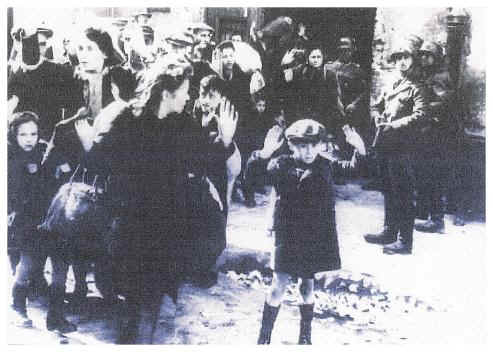Freedom
by Langston Hughes
Freedom will not come
Today, this year
Not ever
Through compromise and fear.
I have as much right
As the other fellow has
To stand
On my own two feet
And own the land.
I tire so of hearing people say,
Let things take their course.
Tomorrow is another day.
I do not need my freedom when I’m dead.
I cannot live on tomorrow’s bread.
Freedom
Is a strong seed
Planted
In a great need.
I live here, too.
I want freedom
Just as you.
© Langston Hughes (The Collected Poems of Langston Hughes, Alfred A Knopf Inc., 1994)
Bedecked
by Victoria Redel
Tell me it’s wrong the scarlet nails my son sports or the toy
store rings he clusters four jewels to each finger.
He’s bedecked. I see the other mothers looking at the star
choker, the rhinestone strand he fastens over a sock.
Sometimes I help him find sparkle clip-ons when he says
sticker earrings look too fake.
Tell me I should teach him it’s wrong to love the glitter that a
boy’s only a boy who’d love a truck with a remote that revs,
battery slamming into corners or Hot Wheels loop-de-looping
off tracks into the tub.
Then tell me it’s fine—really—maybe even a good thing—a boy
who’s got some girl to him,
and I’m right for the days he wears a pink shirt on the seesaw in
the park.
Tell me what you need to tell me but keep far away from my son
who still loves a beautiful thing not for what it means—
this way or that—but for the way facets set off prisms and
prisms spin up everywhere and from his own jeweled body he’s cast rainbows—
made every shining true color.
Now try to tell me—man or woman—your heart was ever once
that brave.
© Victoria Redel from Swoon (University of Chicago Press, 2003)

The Little Boy with His Hands Up
by Yala Korwin
Your open palms raised in the air
like two white doves
frame your meager face,
your face contorted with fear,
grown old with knowledge beyond your years.
Not yet ten. Eight? Seven?
Not yet compelled to mark
with a blue star on white badge
your Jewishness.
No need to brand the very young.
They will meekly follow their mothers.
You are standing apart
Against the flock of women and their brood
With blank, resigned stares.
All the torments of this harassed crowd
Are written on your face.
In your dark eyes—a vision of horror.
You have seen Death already
On the ghetto streets, haven't you?
Do you recognize it in the emblems
Of the SS-man facing you with his camera?
Like a lost lamb you are standing
Apart and forlorn beholding your own fate.
Where is your mother, little boy?
Is she the woman glancing over her shoulder
At the gunmen at the bunker's entrance?
Is it she who lovingly, though in haste,
Buttoned your coat, straightened your cap,
Pulled up your socks?
Is it her dreams of you, her dreams
Of a future Einstein, a Spinoza,
Another Heine or Halévy
They will murder soon?
Or are you orphaned already?
But even if you still have a mother,
She won't be allowed to comfort you
In her arms.
Her tired arms loaded with useless bundles
Must remain up in submission.
Alone you will march
Among other lonely wretches
Toward your martyrdom.
Your image will remain with us
And grow and grow
To immense proportions,
To haunt the callous world,
To accuse it, with ever stronger voice,
In the name of the million youngsters
Who lie, pitiful rag-dolls,
Their eyes forever closed.
Published in To Tell the Story ― Poems Of the Holocaust, Holocaust Publications, NY.
Also published in A Child at Gunpoint by Richard Raskin; please click here for more information, or to order.
Yala Korwin, her family and millions of Jews were victims of ethnic cleansing and genocide during the Holocaust, along with multitudes of other human beings the Nazis considered "inferior," including Gypsies, Slavs and homosexuals. If you are a student, teacher, educator, peace activist or just someone who cares and wants to help, please read How Can We End Ethnic Cleansing and Genocide Forever? and do what you can to make the world a safer, happier place for children of all races and creeds. You can further explore Amnesty International's Words That Burn by clicking the hyperlinked title. We highly recommend this valuable resource for students, teachers and anyone else who is interested in exploring human rights through poems like the ones above. To read more of Yala's poetry, you can click her hyperlinked name.
The HyperTexts